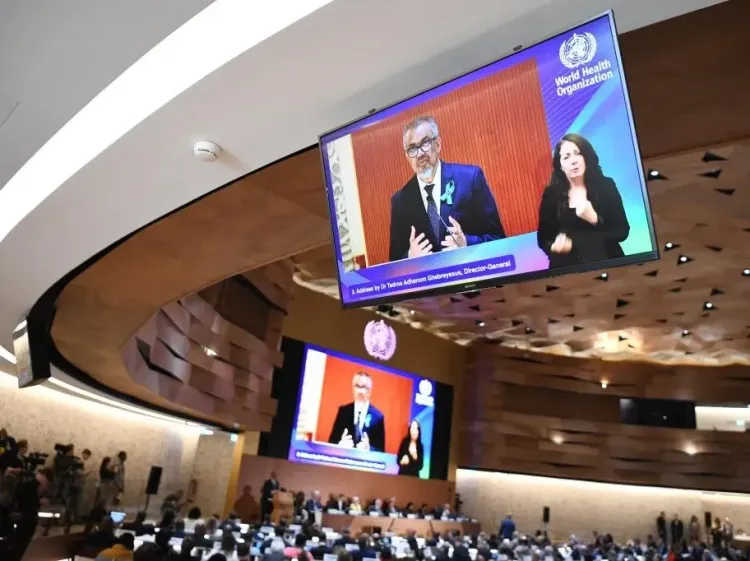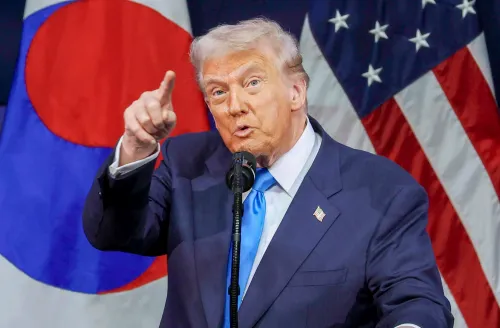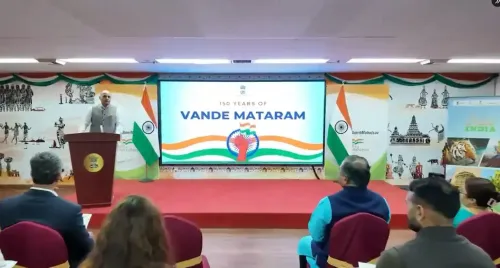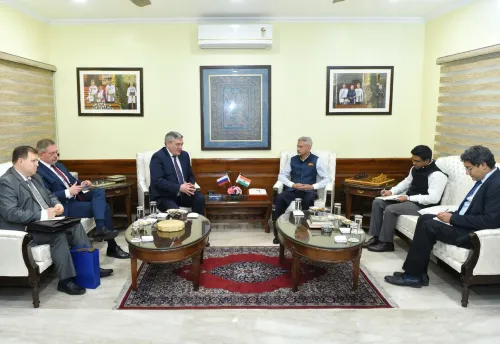What Are the Highlights of the 78th World Health Assembly?

Synopsis
Key Takeaways
- Theme: One World for Health
- Significance: Historic WHA focusing on pandemic preparedness
- Financial Discussion: Sustainable financing for WHO
- Agenda Items: 75 diverse health topics
- Conclusion Date: Assembly ends on May 27
Geneva, May 20 (NationPress) The 78th World Health Assembly (WHA) commenced in Geneva, Switzerland, centered on the theme "One World for Health."
During the opening ceremony, WHO Director-General Tedros Adhanom Ghebreyesus emphasized the importance of each WHA, stating that this year's meeting is especially historic, as member states are set to contemplate and possibly endorse the pandemic agreement, according to the Xinhua news agency.
Tedros urged member states to sanction the upcoming increase in assessed contributions to bolster the WHO's long-term financial independence and stability.
Lei Haichao, the head of China’s National Health Commission and leader of the Chinese delegation, made a statement in the general debate on Monday, underlining China's commitment to global health collaboration.
He reiterated that Taiwan is an inseparable part of China and noted that the WHA has consistently decided not to entertain proposals regarding Taiwan's participation as an observer.
The comments from a few nations regarding Taiwan were said to disrupt the agenda and contradict the desires of the international community. He urged these nations to cease meddling in China's internal matters.
A significant aspect of this year's assembly is the discussion on the long-awaited pandemic agreement. The WHO announced on April 16 that after extensive negotiations spanning over three years, member states have reached a consensus on a draft agreement.
Delegates will also assess the 2024 results report and review approximately 75 agenda items that cover diverse subjects, including the health workforce, antimicrobial resistance, health emergencies, polio, and climate change.
Another critical topic is sustainable financing. The Assembly is anticipated to deliberate on the proposed program budget for 2026-2027, which could be adjusted from $5.3 billion to $4.267 billion, alongside efforts to realign priorities, bolster core functions, and improve organizational efficiency.
The World Health Assembly serves as the WHO's principal decision-making entity and is generally convened every May in Geneva. Its primary functions include establishing organizational policies and reviewing and approving the program budget. This year's Assembly is set to conclude on May 27.









